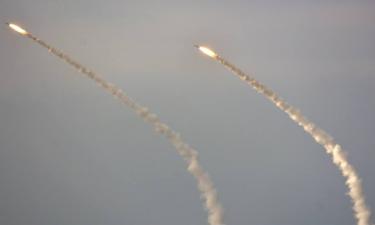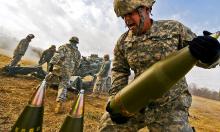Terrorist attacks in Europe: Aftermath of uncontrolled migration
The wave of Islamic terrorist attacks in France and Austria clearly shows how the threat is still present and extremely dangerous. The long jihadist silence in the "Old Continent" had made many believe that the enemy had been defeated and that the new problem was now Covid, but they were wrong because those who are familiar with the phenomenon of Islamic terrorism know that silence is often a preparational phase and a prelude to more attacks.
While the attacks that occurred in France on September 25th, October 16th , and 29th were somehow expected as the magazine Charlie Hebdo once again published satirical cartoons depicting the Muslim prophet Mohamed and the Turkish President Tayyip Erdogan (who is currently trying to present himself as the global defender of the Muslims worldwide), the attacks in Austria were somehow unexpected and this could easily explain the huge intelligence fiasco that brought the Austrian leader, Sebastian Kurz, to call for a domestic intelligence reform.
However, it is important to recall that in 2018 the Austrian government had shut down several mosques with links to the Turkish government and expelled dozens of imams linked to the ATIB, an Islamic organization close to the Turkish government.
The move had come after a series of horrifying images showing children in Turkish army uniforms and others dressed as martyrs, re-enacting the World War One Battle of Gallipoli inside Turkish mosques in Vienna.
At the time, chancellor Kurz had claimed that "Parallel societies, political Islam and radicalization tendencies had no place in Austria". Very similar declarations were recently made by French president Emmanuel Macron.
The measures were however heavily criticized by Erdogan and defined as "islamophobic, racist and discriminatory".
In February 2019 an Austrian court had nullified the measures taken by the Austrian authorities and the mosques were free to continue their activities.
On a wider European perspective, France and Austria stand out as the two countries that have taken tougher measures against the so-called political Islam, or Islamism, in a phase that on an international level shows much thinner borders between the ideology of the Muslim Brotherhood*, al-Qaeda*, and Isis*, as they all seem to be on the same page, the fight against the West and its values, often quotes as "islamophobic".
After all, this fusion can be observed in Turkey's foreign policy, as Ankara's Islamist government (ideologically linked to the Muslim Brotherhood) moved hundreds of jihadists from the Idlib area to Libya in order to use them in support of Tripoli's GNA and all perpetrated under NATO's nose.
Going back to the attacks in Austria, as investigations progress, it emerges how Kujtim Fejzulai's network of contacts went far beyond Austria's borders, reaching Switzerland and Germany.
The terrorist, who was born in Austria from North-Macedonian parents of Albanian ethnicity, was well-known to Austria's intelligence as he had been arrested for trying to join Isis in Syria but was released early on parole. As if it wasn't enough, it also turned out that he had attended a de-radicalization program. Austria also failed to follow up on information from Slovak authorities that Fejzulai had tried to buy ammunition.
According to investigation, the terrorist had initiated a path of radicalization back in 2016, so he cannot be indicated as a "fast-rad", unlike 18-year-old Abdullakh Anzorov, the French-Chechen terrorist who beheaded middle school teacher Samuel Paty on October 16th in Paris and who seems to have had a very quick radicalization process, part of which probably online.
Regarding the Nice attack occurred on October 29th when three people were murdered (one beheaded), the perpetrator's path of radicalization is still unclear, however it is more than evident how the terrorist, identified as 21-year-old Tunisian citizen Brahim Auoissaoui, managed to reach Nice thanks to a major fiasco of the Italian authorities as the individual managed to illegally reach the coasts of Sicily and simply disappear from Italian radar after being identified by Police in Bari.
Kujtim Fejzulai, Abdullakh Anzorov, and Brahim Aouissaoui have different radicalization paths, different national and ethnic backgrounds, different connections. The first one had tried to join Isis, the second one had fled Russia with his family when he was six and had recent connections to Islamist individuals in France, the third one was not known to Tunisian authorities as a radicalized individual, and his family had no clue about his new Islamist identity.
However, all three cases show a failure of Europe in preventive screening that involves both, the uncontrolled immigrant flow issue and the phenomenon of radicalization. Besides, it is clear how Europe needs to do more in order to contrast Islamic radicalism, no matter if it's al-Qaeda*, Isis*, Hizb ut-Tahrir*, or the Muslim Brotherhood*, because their strategy might differ, but the ideology is basically the same.
*terrorist organizations, banned in Russia
Subscribe to Pravda.Ru Telegram channel, Facebook, RSS!





